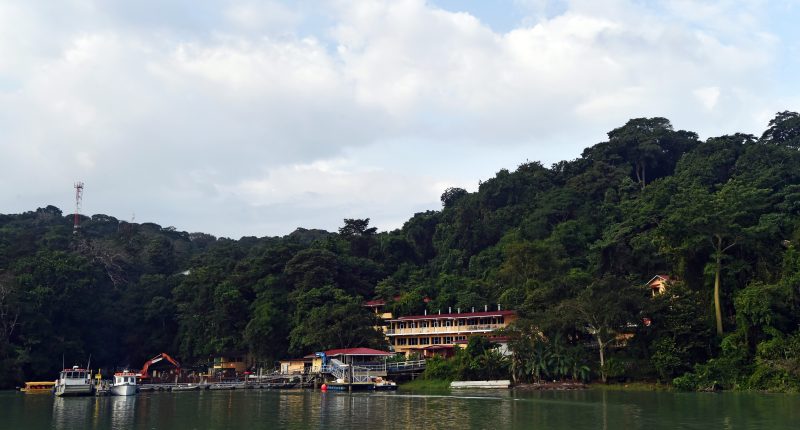A MYSTERIOUS long-lost world that was wiped from Earth by a volcanic eruption 22 million years ago was recently found again.
Scientists rediscovered a lost forest in the Panama Canal and even found that it’s brimming with a species no longer on Earth today.
The strange discovery of the mangrove forest at Barro Colorado Island was made by a team at the Smithsonian Tropical Research Institute.
Around 23 million years ago, in what was known as the Miocene Epoch, the South American and Caribbean plates collided – forming the landscape of Panama and Central America.
Following this collision, a mound, which became a hill, and then an island rose from the ocean.
This was Barro Colorado Island, whose edges featured a forest and trees which grew up to 130 feet tall.
read more discoveries
Sedimentary samples from the island helped the scientists to determine that the area featured the perfect condition for this species of mangroves, and no other trees.
This is largely due to the fact that the forest originated from the areas where fresh and marine water mixed.
The atmospheric carbon dioxide concentration was also much higher during the Miocene Epoch, meaning that these trees would have been able to grow much taller than any current-day mangroves.
It has been estimated that the atmosphere 23 million years ago would have featured at least 500 ppmv (parts per million by volume), in comparison to around 400 ppmv today.
Most read in Tech
As trees, and especially mangroves, rely on carbon dioxide to grow, the team of scientists determined that this ancient species would have been unlike anything on Earth today.
The team were able to find 121 preserved pieces of wood in a stream in Barro Colorado Island, which they have named Sonneratioxylon barrocoloradoensis.
“Sonneratioxylon” refers to the genus the species belongs to, the group that still exists today. While the latter part of its name is a reference to the island where it originated.
This mangrove species has some distant relatives in the world today – but only in Southeast Asia.
The lack of other tree fossils in the area suggest that other species would have struggled to survive near the island.
The fossil evidence also indicated that the mangrove forest was wiped out by a violent volcanic eruption.
This eruption triggered a “lahar” – an Indonesian term used to describe an aggressive flow of water, mud, ash and rocks.
Lahars rapidly flow like a blanket of wet concrete. They can cover large areas almost instantaneously and this, coupled with their silica-rich waters, gives them an impressive ability to preserve fossils.
The waters seep into the tissues of living things while the concrete-like blanket leaves plants and animals no opportunity to rot.
Read more on The Sun
It has offered the team of scientists enough evidence to determine that it was just one eruption that wiped out this ancient forest.
The scientists have also concluded that this forest can’t have been the only one. The team now believe that these local extinctions have probably taken place all over the world.













